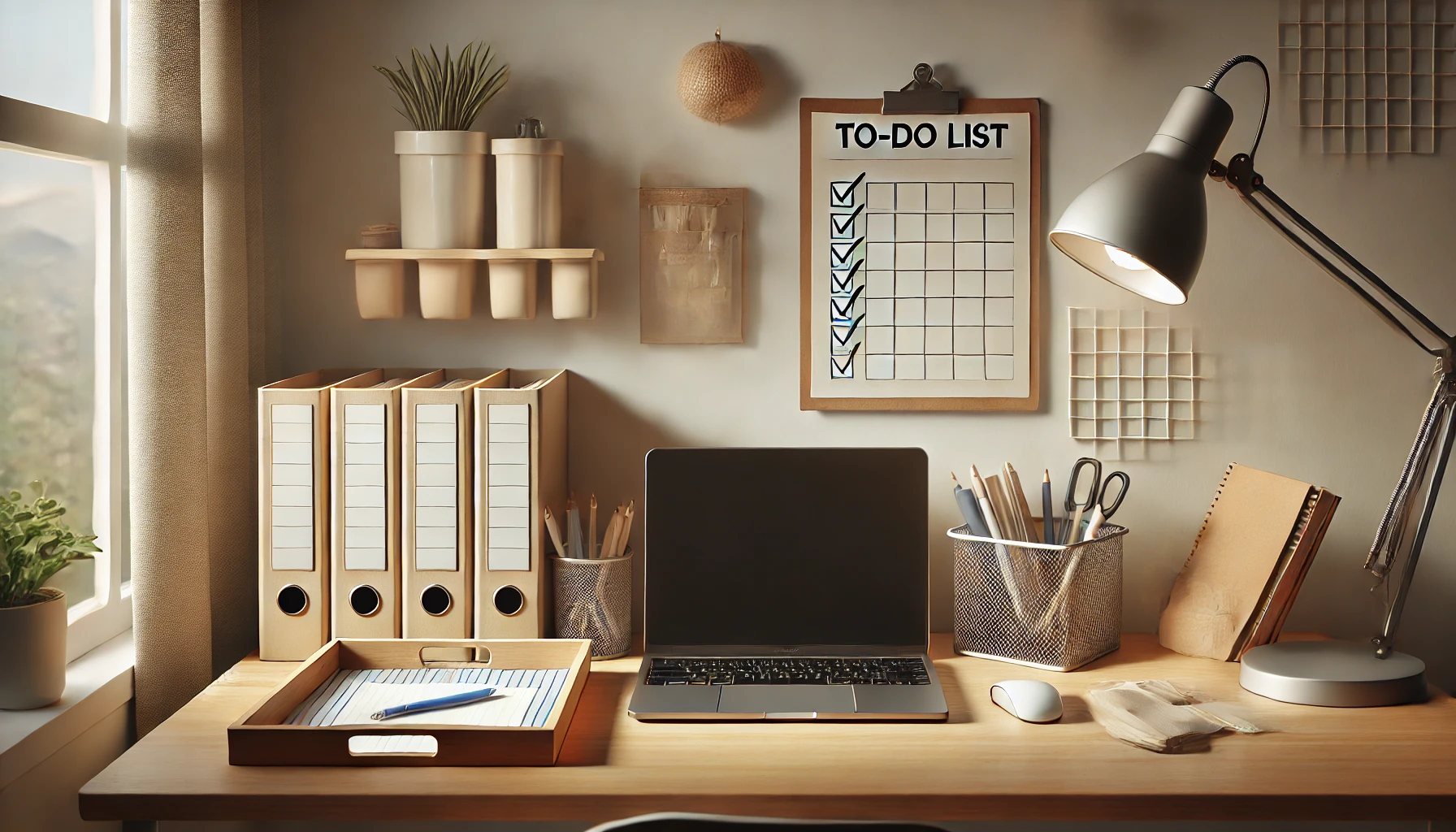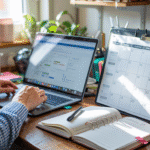Feeling overwhelmed by clutter, chaos, or constant mental noise? You’re not alone. But here’s the good news: getting organized doesn’t have to be complicated or time-consuming.
In fact, some of the most powerful changes start with small, simple steps.
In this article, you’ll discover practical organization tips you can apply right now—to your workspace, your schedule, and even your mind—so you can feel calmer, more focused, and in control.
Why Organization Matters
Being organized isn’t about being perfect. It’s about creating a life that supports your clarity, productivity, and peace of mind.
When you’re organized:
- You waste less time looking for things
- You reduce stress and decision fatigue
- You make space for what really matters
- You feel more in control of your day
Let’s dive into simple ways to get there—starting today.
1. Clear One Small Area
Don’t try to organize your whole life at once. Start with one drawer, one folder, or one desktop corner.
Ask yourself:
- Do I use this?
- Do I need this?
- Does it belong here?
Toss what you don’t need. Keep only what serves a purpose. Instant clarity.
2. Use the “One-Minute Rule”
If a task takes less than 1 minute—do it immediately. Examples:
- Put the mug in the sink
- Close unused browser tabs
- Reply to a quick message
- File that one document
It keeps clutter from building up and creates quick wins.
3. Declutter Your Digital Space
Digital mess = mental mess. Take 10 minutes to:
- Delete old files or screenshots
- Unsubscribe from unnecessary emails
- Organize your desktop
- Close unused apps
Your digital space should feel as peaceful as your physical one.
4. Make To-Do Lists the Right Way
Instead of an overwhelming list of 15 tasks, use this format:
- Top 3 priorities
- Nice-to-haves
- Quick wins (under 5 mins)
This keeps you focused, flexible, and motivated throughout the day.
5. Use Baskets or Trays for Grouping
At home or at your desk, group similar items using trays or baskets:
- Pens, notebooks, and sticky notes in one spot
- Chargers and tech accessories together
- Keys, wallet, and glasses by the door
It reduces decision fatigue and keeps surfaces neat.
6. Label It
Labels help you (and others) know what goes where. Use them on:
- Folders
- Storage bins
- Shelves
- Drawers
A few words = less time searching.
7. Keep a “Catch-All” Bin (But Clean It Weekly)
Have a spot where you can toss random items when you’re in a rush. Then, once a week, take 10 minutes to go through it.
It’s like having a controlled area for clutter that doesn’t get out of hand.
8. Create a Simple Night Reset Routine
Before bed, take 5–10 minutes to reset your space:
- Clear your desk or kitchen counter
- Prep for the next day
- Put things back where they belong
You’ll wake up to a calm environment—and a clearer mind.
9. Use the Rule of “One In, One Out”
Whenever you bring something new into your space, remove one old item. This prevents buildup over time and forces intentional decisions.
Example: New shirt? Donate one you no longer wear.
10. Don’t Aim for Perfect—Aim for Progress
You don’t need color-coded binders or Pinterest-level systems. You just need structure that supports your lifestyle and reduces stress.
Even one small change today makes a difference.
Final Thoughts: Small Steps, Big Impact
Getting organized isn’t a one-time event—it’s a habit. And like any habit, it starts with small, intentional actions.
Pick one tip from this list and apply it right now. Then another tomorrow. Before long, you’ll notice your space, time, and energy flowing more smoothly—and life feeling a little lighter.
Because when things around you are in order, your mind has more room to breathe.

Daniel Carter believes that small daily changes lead to extraordinary results. Through simple and effective strategies, he inspires readers to take control of their routines, overcome procrastination, and unlock their full potential.











